-
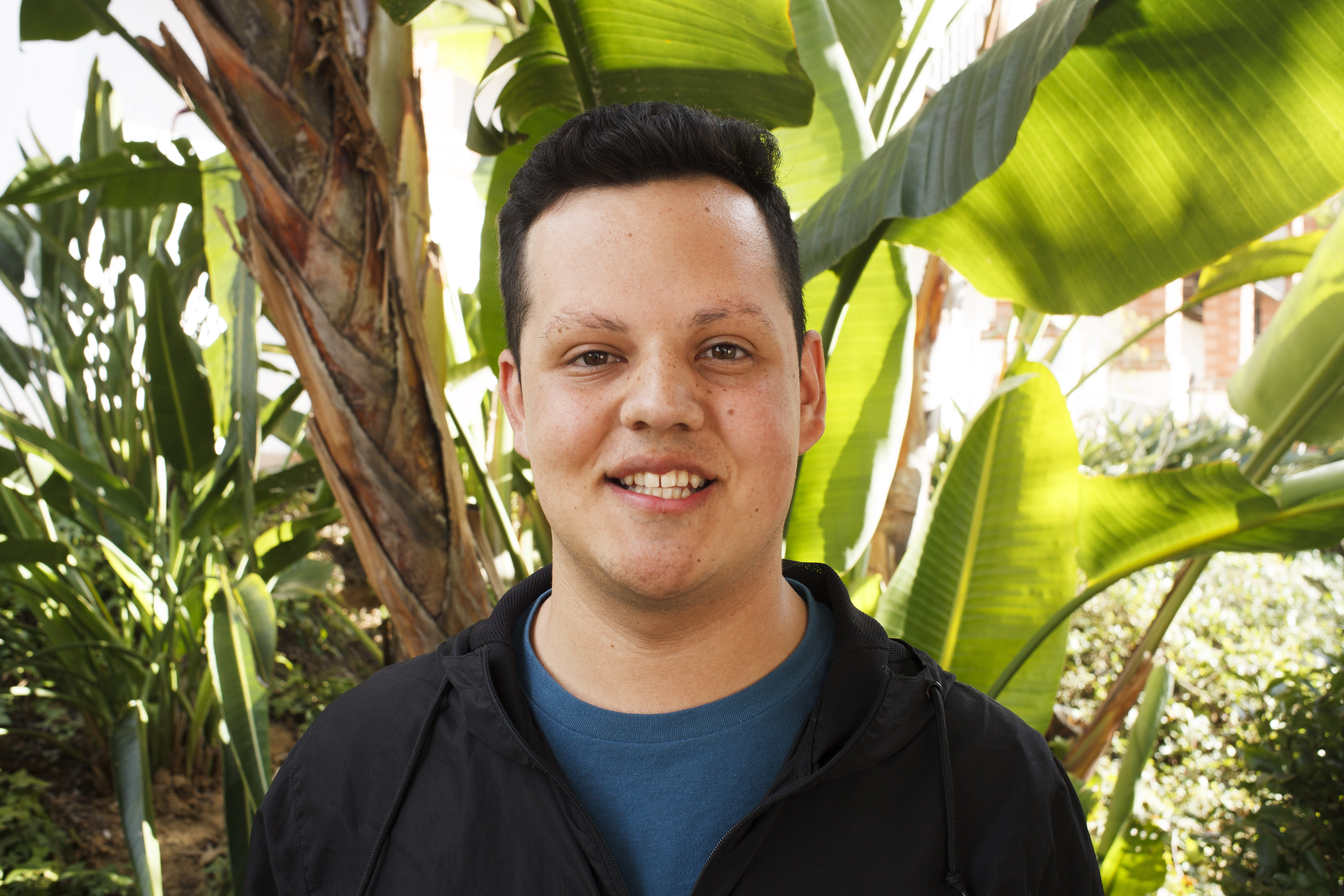
Julian Padilla
Latin American Studies Major, Julian Padilla ‘24 studied abroad in Argentina and Chile in a program focused on “Human Rights and Cultural Memory” through UCEAP. In Chile he and other UCSD Students were a part of building a database for victims of human rights abuses that occurred during Estallido Social in 2019. An article about this project featuring a quote from Padilla was published by Universidad Alberto Hurtado.
What made you pursue this travel opportunity?
Coming from a Mexican background, I wanted to travel somewhere in Latin America, that was outside of Mexico. In multiple courses at UCSD I have explored both histories in Argentina and Chile, but what better way to learn than to experience this in person.
How were you able to make it possible?
I think like a lot of people, I was intimidated by the cost of the program and the financial aspects of it. Fortunately, through financial aid I was able to have most of the program covered which eased my anxiety. There are a lot of resources out there including UCSD Study Abroad which helped me with concerns that I had. Most importantly, I took initiative and I was determined to make this happen. I had to be selfish and think about what I wanted for myself.
What did you do there and what did you learn?
We learned about the past dictatorships in both countries and the struggle for human rights and democracy in their history. We were able to speak with people who were around during this period and hear their stories. We ate typical foods, learned traditional dances, and immersed ourselves in the daily aspects of life. From waterfalls, to deserts, to mountains, to snow, there were countless places that I visited. Latin America has incredible natural beauty that I hope to continue to explore in the future. I was also fortunate enough to be able to experience the Madres de Plaza de Mayo do their weekly march in person. These are experiences that I will never forget and motivate me to learn more.
In your own words, what was your work with the victims of the Estallido Social and what is the ongoing work that folks can learn more about?
First, I wanted to say that I am honored to be part of a project like this, with an amazing group of people. To provide some context, in October 2019, massive demonstrations erupted in Chile, where millions took to the streets to protest against the government. These series of events would later be known as the Estallido Social. During this wave of protest, many people were beaten, tortured, and murdered at the hands of the police, military, and other government forces. In the work of this project, we were able to go through government archives and create a database with the names of victims, the crimes committed against them and other essential information to their cases. The goal was to have a set of information because of the amount of institutional violence that occurred. Emotionally, it was not easy to read through the horrors and abuse that the victims experienced. However, gathering this information was critical for the formation of this project. This is an ongoing development and this report of the victims was recently presented to the Undersecretary of Human Rights of Chile. The hope is that this turns into a much larger assignment with the support of the government.
What advice do you have for other students interested in studying abroad in Latin America?
My main advice is to trust your gut feeling and to not be scared. It can be daunting thinking about studying and living in a different country, with a different language and culture, but it is an experience that you will not regret. Try to immerse yourself into the culture and be understanding of the space that you are in. There were times in the months leading up to the program where I doubted myself and I did not believe that I could do it. But I managed to push through and looking back I am forever grateful that I did study abroad. I made incredible connections with professors and friendships with people not just in the program but people that I met outside of that. There is so much more out there to learn that a textbook or an article cannot teach you. Do not be scared to go out of your comfort zone and explore something new.
Julian has offered his email for anyone who wants to reach out about about his experience or studying abroad: j2padill@ucsd.edu. -
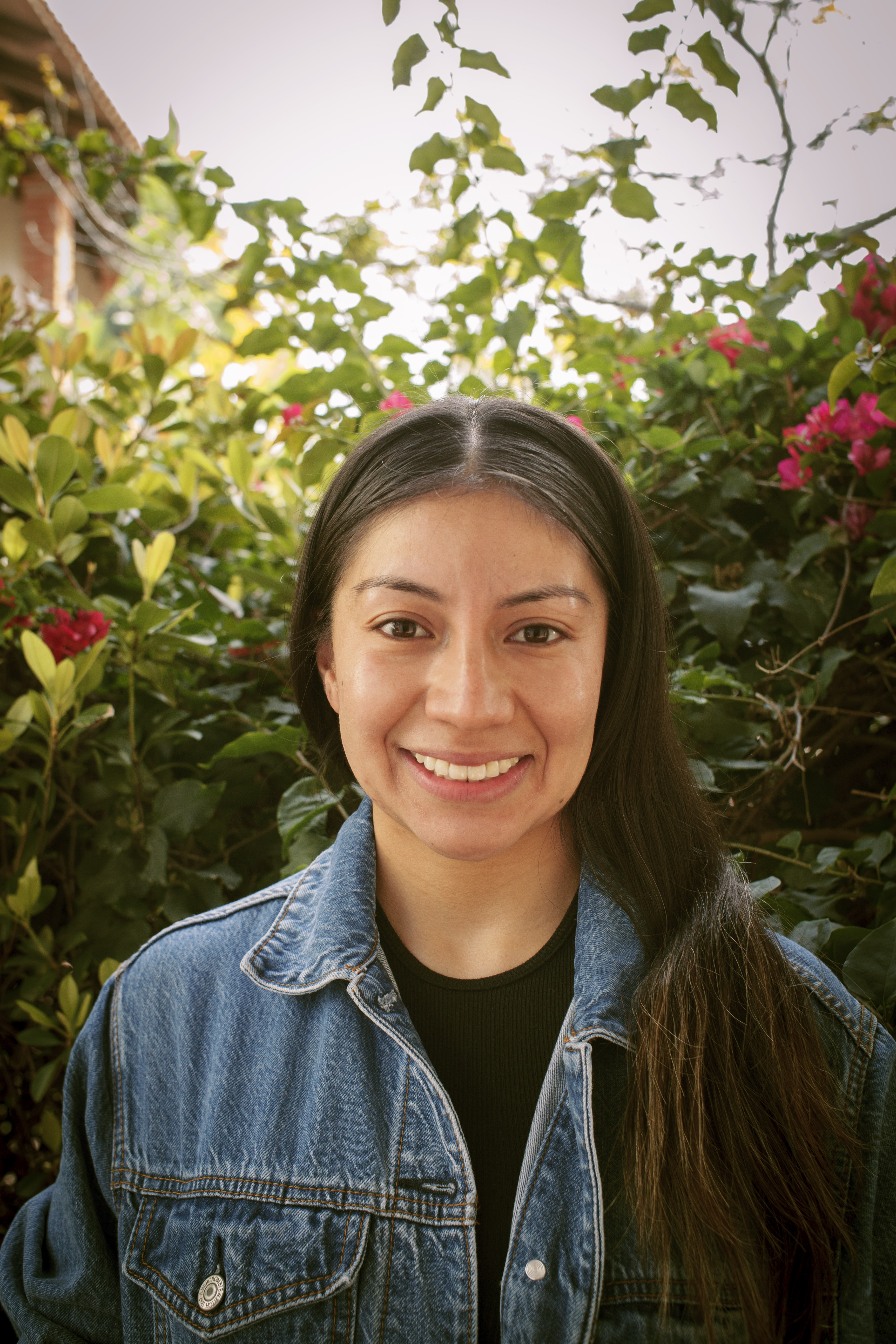
Sara Soto
Sara Soto is a 4th year Latin American Studies and History major. She was recently accepted into UCLA’s Masters in Teaching and Education program where she will continue to work towards her dream of becoming an Ethnic Studies High School Teacher.
What stands out for you from your experience with your majors?
Being a Latin American Studies major has been a great learning and nurturing experience. As a double major in History, I have loved learning Latin American history and different frameworks that help better contextualize historical and social events. For example, I have learned the history of different Indigenous groups in Latin America, history of my own home country, Mexico, and the history of Eurocentrism present in Latin America, a topic that has always interested me! I have also learned about the experiences of Latin Americans from different countries and the way in which many of our experiences connect us. However, above anything, what I have liked the most about being a Latin American Studies major is being able to share relevant histories at home with my parents.
What topics have you enjoyed researching?
Research on Mexico in the North American Free Trade Agreement, Experiences of Children of Immigrants in America, Mestizaje in Post-Colonial Mexico, Gentrification in Mexico City, and La Raza Cosmica. These projects were so exciting for me as I have always been curious about these topics and their role in shaping the experiences of Mexicans, but also how they connect to similar events in other countries throughout Latin America. They also helped me better understand and analyze readings from various classes and overarching themes such as coloniality of power, neoliberalism, globalization, Indigenous autonomy, and decolonization.
What are you working on now?
My current research topic is Contemporary Experiences of Mexican Immigrants in the US. I am aiming to focus on the experiences of Mexican immigrants that arrived to the US during or after the 1994 North American Free Trade Agreement (NAFTA), and have not returned since. As something that is really close to me personally, I would like to introduce the voices of individuals who felt forced to leave behind everything they knew, and have spent nearly two decades in the US, often separated from their families, land, and culture. I am presenting my research in April during the 2024 National Association for Chicana and Chicano Studies (NACCS) conference where I will be sharing why immigration reform is urgently needed for Mexican immigrants.What advice do you have for other students?
If a student is considering a major in Latin American Studies I would recommend them to take a course with Professor Amy Kennemore. She really centers grassroot movements in Latin America and focuses on an approach "from below" that shares the experiences of Latin Americans and their histories of courage, perseverance and beauty. Any course with Professor Kennemore is a great learning experience and super informative! If someone is planning to present at a conference I would advise them to research something that has always been close to their hearts because it is the greatest feeling ever to finally find answers to something you have always wondered about. I would also like to share that while my own interests are centered in Mexico, the LAS program really allows for a focus on any region of interest! -
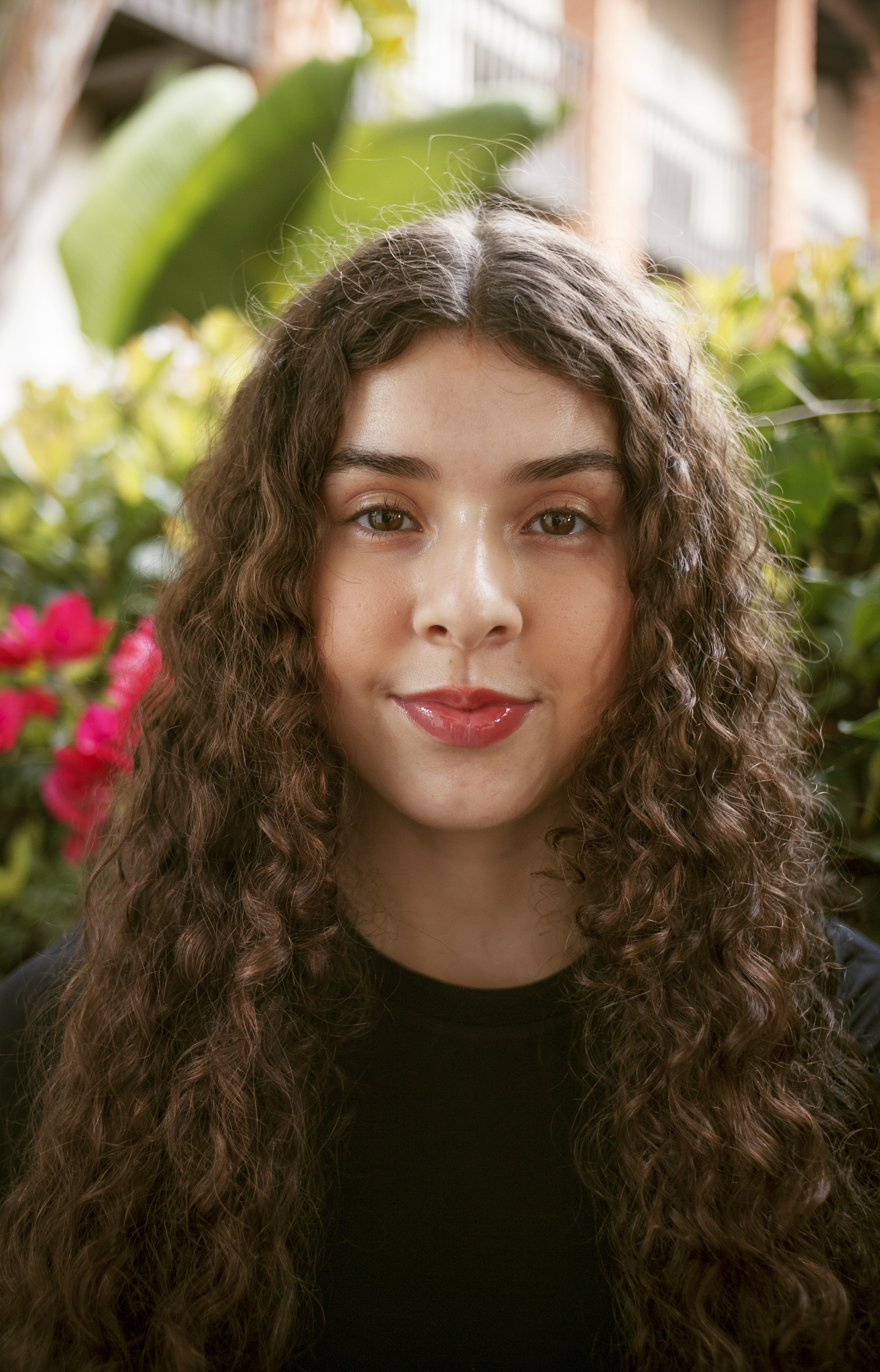
Isabella Campa
Isabella Campa is a 3rd year Public Health Major and recent Triton Research & Experiential Learning Scholar (TRELS). The following is an excerpt from her experience taking a course in Latin American Studies.
What is “Para Ella”
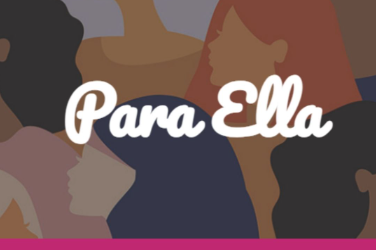
"Para Ella," is a website targeted towards sharing healthcare resources for women from underrepresented groups in San Diego county, but it has great resources that anyone could use or share! I chose to focus on underrepresented women in San Diego because of the health disparities women, especially underrepresented women, face when trying to access healthcare. LATI 170 “Social Science Research in Latin America” with Amy Kennemore is what gave me the idea to do the project in the first place. I think it was a great class that gave students freedom to explore their interests and create a personalized project. The class also showed me important factors to creating a project, especially a community based project, from start to finish.
What did you gain from the experience?
Thanks to Triton Research & Experiential Learning Scholars (TRELS) and Amy Kennemore as my mentor I was able to make the idea a possibility. Working with Amy was a great experience, she was very insightful about community projects and gathering resources. She thinks outside the box, taught me about important considerations, and was able to give me valuable information for creating the project and finding resources.
Would you recommend applying to TRELS?
I would 100% recommend TRELS to Latinx students and students focused in Latin American studies. TRELS gives you the opportunity to explore your interests whether they are research based or exponential learning based. If you have a project idea, go for it and apply to TRELS! I have done TRELS twice, one project I even did with a friend at UCSD. TRELS is a great opportunity that funds you, allows you to work on individual or partner projects, and is a great way to get to work with a professor outside of class.
How has “Para Ella” been part of your academic & professional journey?
When I first got to UCSD, I wasn't certain on what career I wanted to pursue but my time at UCSD and doing TRELS has helped me discover my interest in pursuing a career in public health research. TRELS allowed me to lead my own projects and gave me space to share my own ideas. I have been very fortunate to have done research/internships in different areas of public health including; opioid use disorder treatment, nutrition, neonatology, health policy, and community health. These experiences have helped shape my interests in women's health and were part of shaping my TRELS project, "Para Ella."
After graduating this spring, I will start a Master of Public Health program in the fall. I hope to eventually get my Ph.D. in Public Health and become a researcher working with women and underrepresented groups.
Learn more about TRELS
Learn more about other Undergraduate Research Hub Opportunities
Learn more about LATI Course Offerings
-
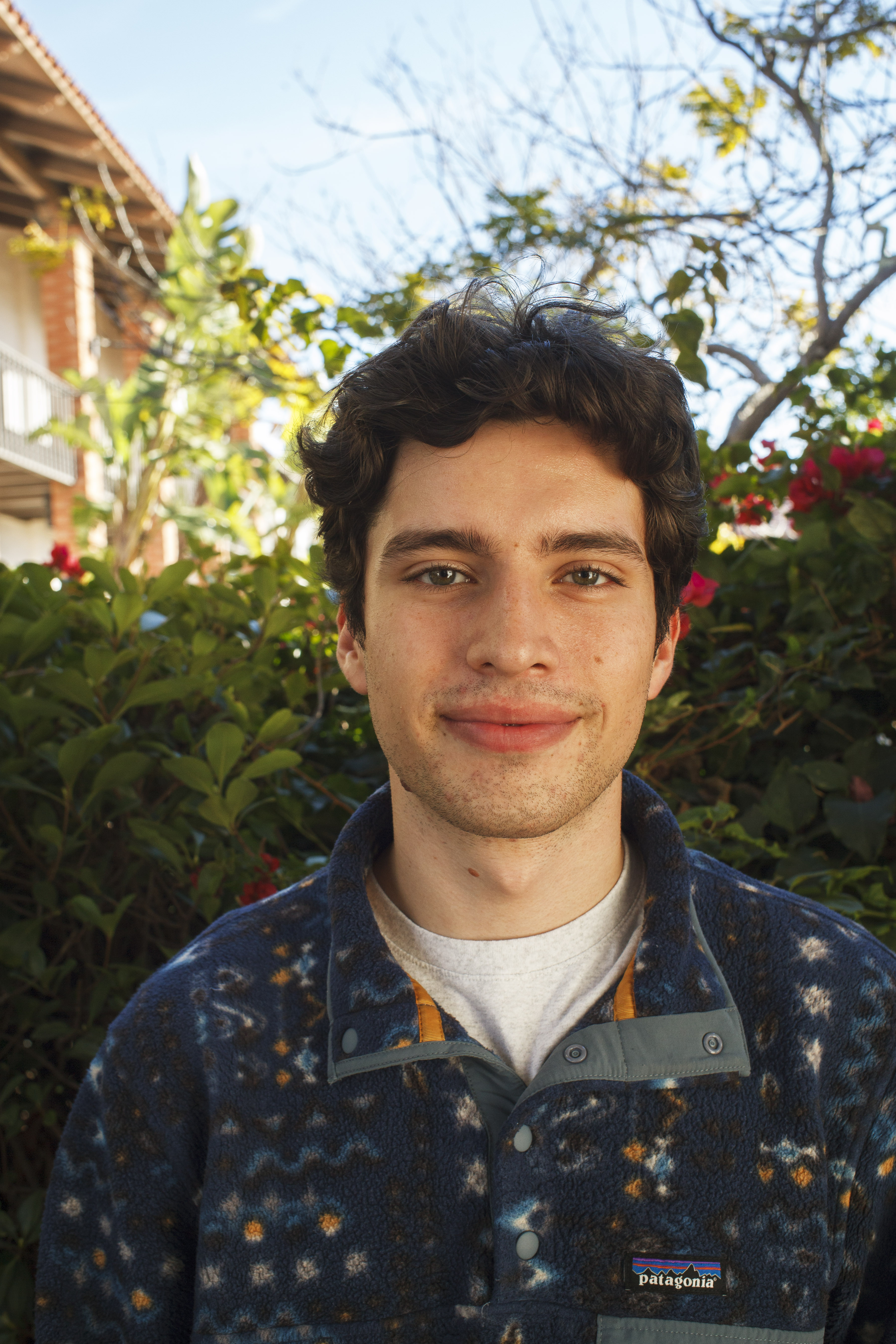
Noé Castrejon
Noé Castrejon , 4th year Theatre and Dance Major and Latin American Studies Minor, performed the roles of Carmelo and Hiberto in UCSD Theatre and Dance Department’s recent production of The Promise by José Rivera.
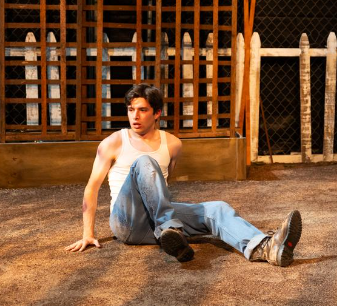
“Working on The Promise made clear to me the connection between my major (Theatre) and my minor (Latin American studies): a common love for stories. Being interdisciplinary, my minor allowed me to hear Latin American stories as mediated by scholars, by activists, by documentarians, by many people across many continents, and to take from this thoughts, opinions, and (most importantly) feelings which inform my acting and my collaboration.
I was very lucky to get to step into The Promise when I did, and to find myself surrounded by a beautiful group of artists whose clarity and passion around the text gifted me the confidence to try to tell a few stories. The stories of colonialism and resistance, stories in both the language of broad systems and the intimate language of family and community, all informed the final presentation. I hope to continue past my undergrad to listen to the Latin American studies community, and to take with me into my acting the classes and people who’ve affected me here at UCSD.”